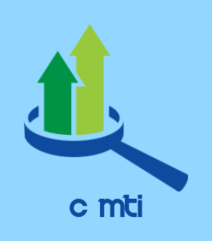Table of Contents
- Overview
- History of Latvian Language
- Latvian Language in Modern Day Latvia
- Why is Latvian Language Important?
- Conclusion
Overview
Latvia is a small country in the Baltic region of Northern Europe. It is bordered by Estonia to the north, Lithuania to the south, Belarus to the southeast, Russia to the east and the Baltic Sea to the west. Latvia has a population of approximately 2 million people, most of whom are ethnic Latvians. Despite its small size, Latvia has a rich cultural history, and its language is an important part of its identity.
Latvia has only one official language, Latvian, which is spoken by nearly all of the population. Latvian is a Baltic language, which is closely related to Lithuanian and Old Prussian. It is one of the oldest living languages in Europe and is one of the few surviving examples of ancient Indo-European languages.
History of Latvian Language
Latvian is an ancient language, with written records dating back to the 13th century. The earliest written records of Latvian date back to the 16th century, when Latvian was used in religious texts. Latvian was the language of the Latvian people before they were conquered by the Germanic Teutonic Knights in the 13th century. The language was suppressed during the Germanic occupation, and German was the language of the ruling elite.
After the defeat of the Teutonic Knights, Latvian was revived and became the official language of the Duchy of Courland, which was ruled by the Polish-Lithuanian Commonwealth from 1561 to 1795. During this period, Latvian was the language of administration, commerce, and culture.
Latvian was again suppressed during the Russian occupation of Latvia from 1795 to 1918. During this time, the language was banned in schools and churches, and Russian was the language of government. After Latvia declared independence in 1918, Latvian became the official language of the newly established Republic of Latvia.
Latvian Language in Modern Day Latvia
Latvian is the official language of the Republic of Latvia, and it is spoken by nearly all of the population. It is also one of the official languages of the European Union. Latvian is a member of the Baltic language family and is related to Lithuanian and Old Prussian. It is written using the Latin alphabet.
Latvian is a complex language, with a large number of grammatical rules, and a large number of loanwords from other languages. It is also noted for its long, complex words, and its many dialects. Latvian is a tonal language, which means that the meaning of a word can change depending on the tone in which it is spoken.
Latvian is spoken by the majority of the population of Latvia, although some other languages are also spoken. The most common minority languages are Russian, Lithuanian, and Polish. English is also widely spoken, particularly by the younger generations.
Why is Latvian Language Important?
Latvian is an important part of Latvian culture and identity. It is a unique language, with a rich history, and it is an important link to Latvia’s past. Latvian is also an important language for international communication, as it is the official language of the European Union.
The Latvian language is also important for maintaining the culture and identity of the Latvian people. It is a unique language, and it is one of the few surviving examples of ancient Indo-European languages. It is also an important language for Latvians living abroad, as it helps them to remain connected to their homeland.
The Latvian language is also important for business and commerce. Many Latvian companies conduct business in other countries, and Latvian is used as a business language in many countries. It is also the language of the European Union, and Latvian is used in many international organizations.
Conclusion
Latvian is the official language of Latvia, and it is spoken by nearly all of the population. It is an ancient language, with a long and rich history, and it is an important part of Latvian culture and identity. Latvian is also an important language for international communication, as it is the official language of the European Union. The Latvian language is important for maintaining the culture and identity of the Latvian people, as well as for business and commerce.

